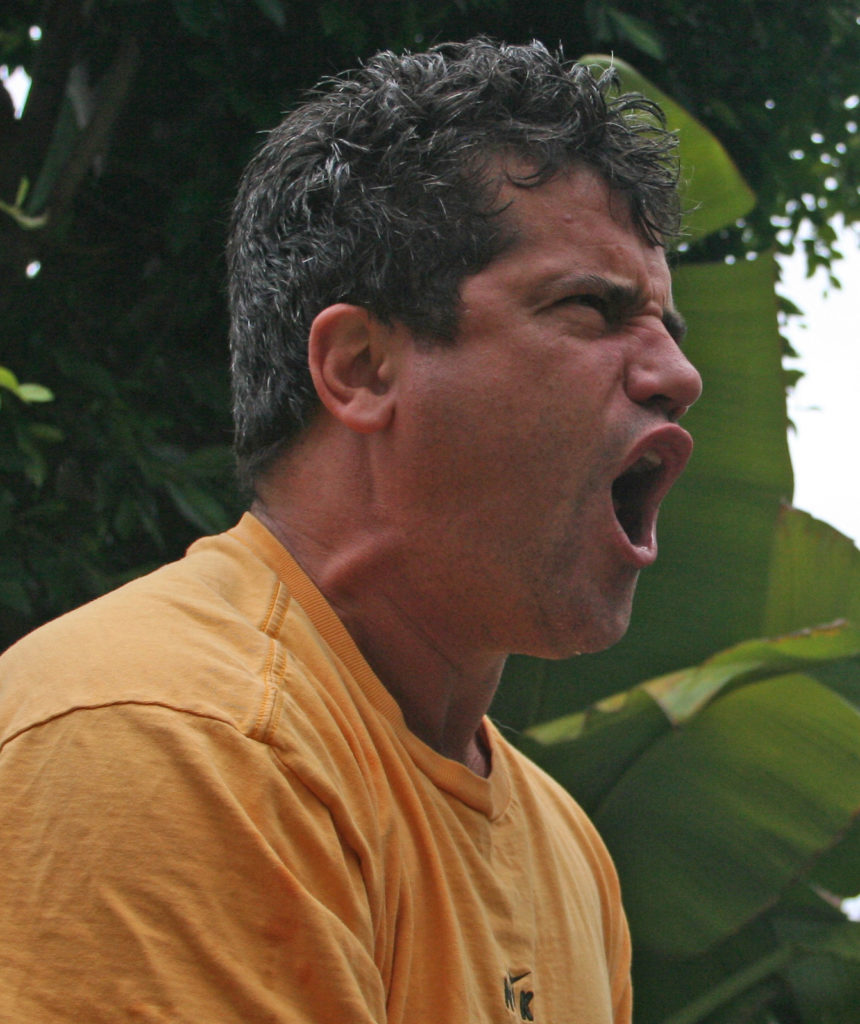We believe that by being vegan, we’re doing a good thing. We’d like others to do the same good thing. But we can’t force others to do as we do. There is no way to make the consumption of animal products illegal at this point, and even if some president or dictator would abolish animal consumption in some country, the time is not ripe for that and soon such a law would be reversed again.
So one of the things we need to do (apart from creating alternatives) is to change hearts and minds. To do that, we need to understand others, know where they come from, listen to them, and know what attracts them and turns them off. In other words, we have to be able to take their perspective. I have called this idea YANYA before, or You Are Not Your Audience.
When a tiny percentage of the population goes against the tide of the other 98%, it must be that this minority somehow has more motivation. We are, to some extent, different from other people.
One problem is that what many vegans like to hear is not what the general audience likes or needs to hear. Vegans who serve their non-vegan audiences the truth “straight up” (in a video, interview or whatnot) often get cheered on by other vegans. This is what I would call confirmation bias cheering (when you suffer from confirmation bias, it means that you favor information that confirms your own beliefs and opinions). You cheer because your own opinion gets confirmed, without taking into account the reaction of the people you actually, ideally want to reach.
Let me give you some examples to make this concrete. A video did the rounds of an activist who said something that many or most of us want to say – at least sometimes – to meat eaters: yes, we are judging you, because your choices cause so much suffering, and you could easily choose something else. Line by line, many vegans’ initial response is: “exactly!” “spot on!” And we give thumbs up, and we comment, and we share…

The same goes for memes that ridicule non-vegans and their often crazily irrational reactions. We may find them funny and recognizable. That’s why we often share them and make fun of non-vegans’ reactions together with our fellow vegans. And having some fun is… fun. And necessary. But it’s good to consider the effect of memes like these on non-vegans.
I once did a prime-time TV debate with the president of the farmer’s union in Belgium. What I said was, I think, balanced, gentle, and reasonable. But what I heard from some vegans was: “Why didn’t you just say it like it is? Why didn’t you tell him that raising animals for food is criminal and that eating meat is a crime?” I can imagine I would have received cheers from vegans, but I would have alienated my general audience – the people I actually want to reach.
Likewise, I did a couple of interviews, based on the publication on my book, with mainstream media in Belgium and the Netherlands. I knew that the overwhelming majority of the readers of these interviews would be non-vegans. I mentioned how fundamentalism does exist in the vegan movement, but that it expresses itself not in terms of behavior (being vegan is not fundamentalist in itself) but possibly in our communication and the way we relate to other people. I said that we can either communicate compassionately, or like an asshole. The editor in chief of one newspaper made a clickbait headline out of that: “To radical vegans I say: don’t be an asshole.”
Vegans may not like that statements like these may contribute to the image of a divided movement with some internal differences. But there’s a way to think differently about this, from the audience’s perspective: any non-vegan who ever had to deal with an annoying, aggressive vegan (you know they are out there) may very well find it a relief to read that not all vegans agree with that approach.
To some vegans, I seem too tolerant, too pragmatic, too forgiving. And yet today, as a reaction to the same interview, in which I plead for a more tolerant approach, I received a letter from a non-vegan, from which I can derive that, in spite of my plea for tolerance and open-mindedness, I still came across as intolerant and dogmatic. And no, her letter was not at all unreasonable or unkind.
Another thing: to make veganism seem less rigid and dogmatic, I sometimes describe the exceptions I make. Mentioning that I don’t examine wine and bread when out of the house, makes me a target for some vegans who think I shouldn’t even call myself a vegan. Yet to non-vegans (again, the people we actually want to reach) these exceptions don’t even count as exceptions, and may just confirm how strict we really are.
Expressing your opinions with your audience in mind has nothing to do with pandering to their views and desires. Some vegans will say: yes, of course non-vegans like a gentle, incremental approach, because you give them a way out, an excuse. Of course they like it when you don’t tell them they are under a moral obligation to go vegan (I’m not a fan of “moral baselines”).

But it’s not about telling people what they want to hear because it is comfortable. It’s about telling them what is useful for them to hear so that some change will happen (in their attitude and/or behavior). If that change is not yet the full monty, then so be it.
So, one important message here is: if you read something by a vegan in a mainstream channel and you don’t like it, think first about how the larger audience would react to this. Would they get as angry as you are? Or would it actually be something that brings them closer, even if it’s not conforming to your ideal? The reactions that matter are not those from vegans, but those from the non-vegan audience. If vegans could keep this in mind, vegan spokespeople wouldn’t be held back by the potential backlash by some vegans, and could more freely speak in a way that appeals to the widest possible audience.
You may disagree with all of this, and you may believe that speaking your truth, the way you feel it, always and forever, in every circumstance, is the most important thing for you. But if we take seriously the often heard creed “It’s not about us, it’s about the animals,” then I believe we should not consider voicing our truth the priority. Instead, our priority should be the real-world effect we have with our words.
Featured image: two women have a discussion. The ways we communicate and relate to others have a huge impact on how our message is received. Image via Pixabay.





